11 Ingenious (and Organic) Gardening Tips
Tips to keep pests off your plants, cut flowers fresher and more — without spending extra
1 of 11
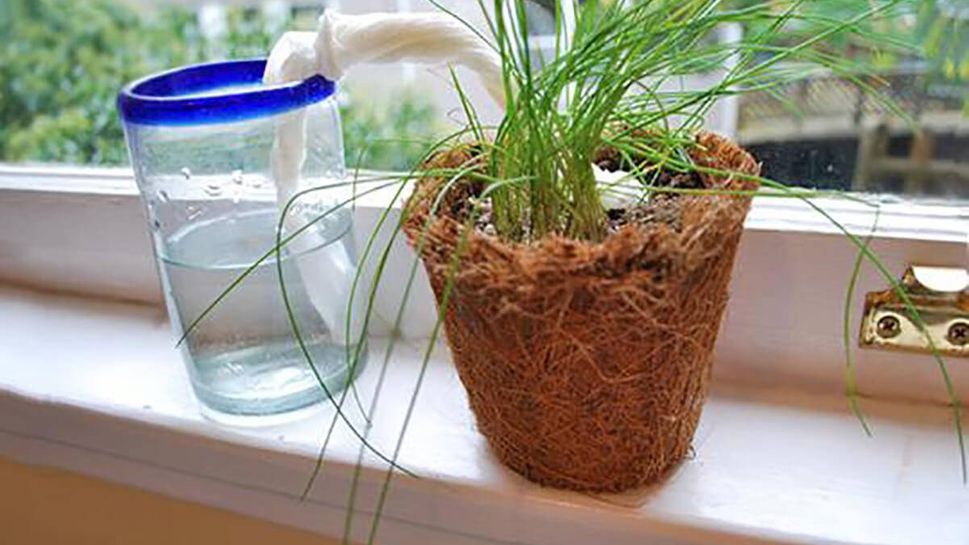
1. Easy Watering Fix While You're Away
Why ask a friend to water your plants when you're out of town when all you need to create your own automatic plant watering system are paper towels and a glass? According to Liz Foreman of HouseLogic.com, the process is simple: Tightly roll a few sheets of paper towel (we suggest using a sturdy brand) at a diagonal to create a thick rope. Then place one end of your paper towel rope all the way into a glass of water and drape the other end across the soil, a few inches from the plant. The paper towel sucks the water from the glass and deposits it at an even rate on the soil. Watering for a few days: done.
Click through to the following slides for 10 more great tips.
(This article appeared previously on Grandparents.com)
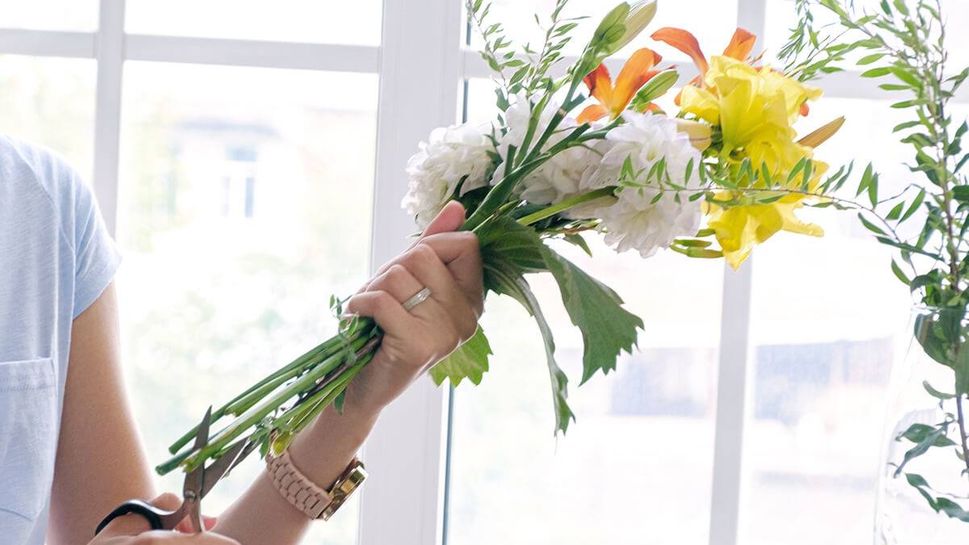
2. Keep Cut Flowers Fresher, Longer
When you cut a flower from its roots, you're separating it from its water and food source. The water part is easy — throw the blossom into a vase. But without resorting to store-bought plant food, how do you feed it? According to Scientific American, lemon-lime soda is a near-perfect solution. Slightly acidic water travels more quickly up plant stems than neutral or basic water, giving flowers a boost of hydration. Plus, one can of 7Up or Sprite contains 38 grams of sugar, providing nutrients the flower needs. For the proper ratio, horticulturists recommend one to three cans of water to every can of soda.
Note: Sugar also makes the vase water a friendly breeding ground for bacteria; keep bacteria at bay by adding a few drops of bleach to the vase solution.
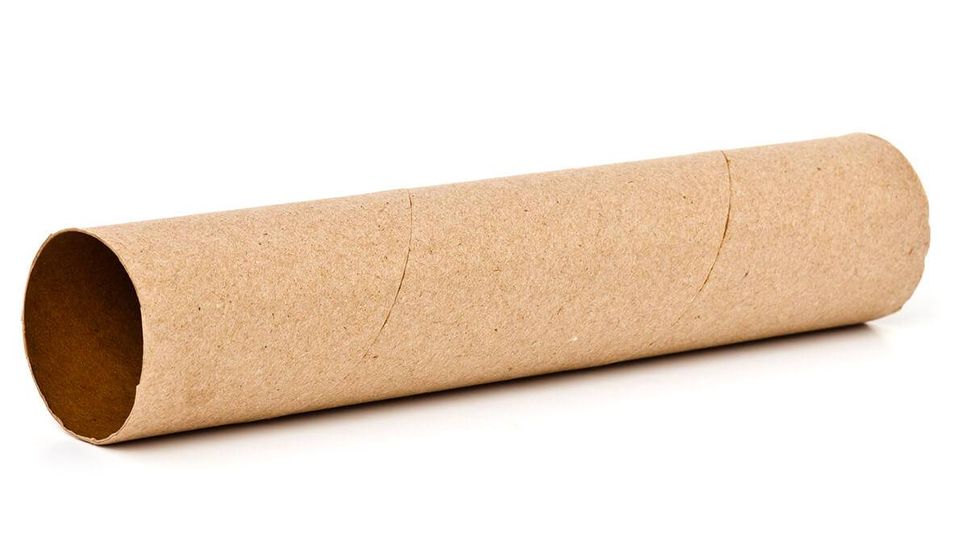
3. Reuse Paper Rolls to Grow Seedlings
Sweet, tiny seedlings left to fester outside are ripe targets for garden pests. Keep them safe by starting your seeds indoors in easy, do-it-yourself growing pots made from recycled toilet paper rolls. Amanda from Burlap and Denim gives her instructions for fashioning the cardboard pots, which simply requires bending and folding one end of a trimmed tube to create a bottom. She guarantees the rolls will hold in enough dirt, even if some escapes the bottom. Pack the tiny filled planters in a container and tend them gently until they're ready to transfer outside.
Bonus: You can plant the rolls directly in the ground — they'll disintegrate into the soil with time.
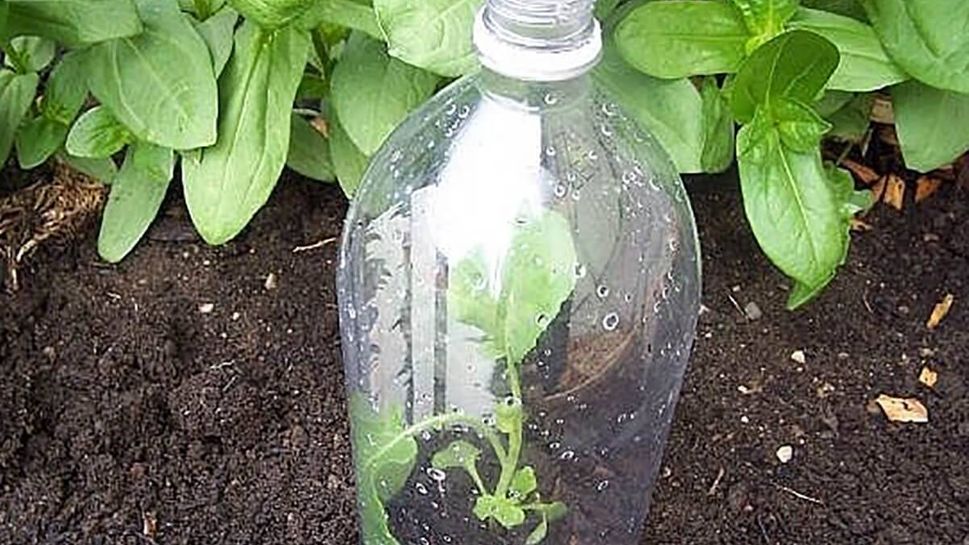
4. Protect Small Plants with a Plastic Bottle
Protect small plants in your garden from frost and rodents by topping them with cloche made from an ordinary two-liter plastic soda bottle. Just cut off the bottom and push the bottle into the soil. If the weather is already warm, make sure to remove the cloche during the day to inhibit mold and mildew growth, says Ian Lowe of Plant a Seed and Watch It Grow.
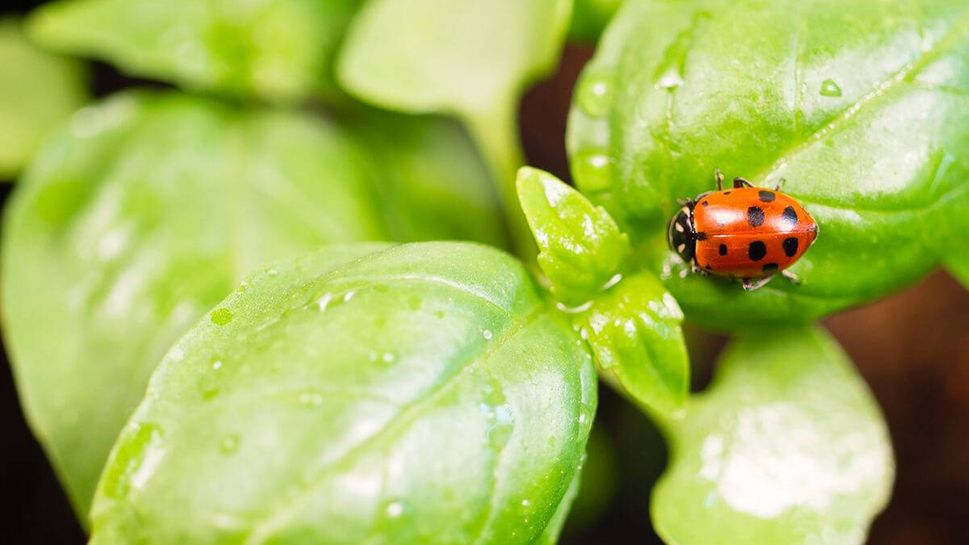
5. Let Ladybugs Do Your Dirty Work
Sap-sucking aphids are quite destructive — not only do they eat the plant's food source, but their saliva is toxic and aphids are often infected with viruses, all of which results in low growth rates; mottled leaves; yellowing, stunted growth; curled leaves; browning; wilting; low yields and death.
If you do notice an infestation of aphids (they hide on leaves' undersides), there's no need to turn to pesticides. Instead, look to their natural predator: pretty, spotted ladybugs (a.k.a. ladybirds). An adult ladybug can eat 50 aphids a day. Ladybugs can be purchased online or may be available at your local garden store.
The process: Place ladybugs at the base of infested plants — they'll crawl upwards to find their prey. To give you an idea of scale, one large, heavily infested rose bush requires two applications, spaced a week apart, of about 1,500 lady beetles each, according to UC Davis's Integrated Pet Management Program website.

6. Cheers to This Slug Bait
If you have moist, shady areas in your yard, you already know: Slugs are a garden pest to be reckoned with, devouring several times their body weight of their favorite foods, which include hostas, lettuce, corn, beans, strawberries and annual flowers, according to OrganicGardening.com.
So how do you stop their slimy trail of plant death? With good, old-fashioned beer. Of all the ways to kill a pest, we deem this method the most humane (or at least the drunkest). A University of Colorado study found that slugs are indeed attracted the fermented yeast in beer, causing them to dip in for a drink, after which they never emerge (because they drown). The study tested a variety of brews, including nonalcoholic Kingsbury Malt Beverage, Michelob and Budweiser.

7. Fight Fungus with Milk
Capable of turning a perky crop of plums, peaches and other fruit into a rotten, mummified mess, the plant disease known as "brown rot" is the bane of fruit trees and plants. In 1999, researchers in Brazil found that spraying a solution of milk and water on vulnerable squash plants once a week effectively prevented powdery mildew growth. And although current research is inconclusive, home gardeners report that a solution of one part milk to three parts water prevents brown rot from forming, thanks to the anti-fungal agents released when dairy reacts with sunlight.
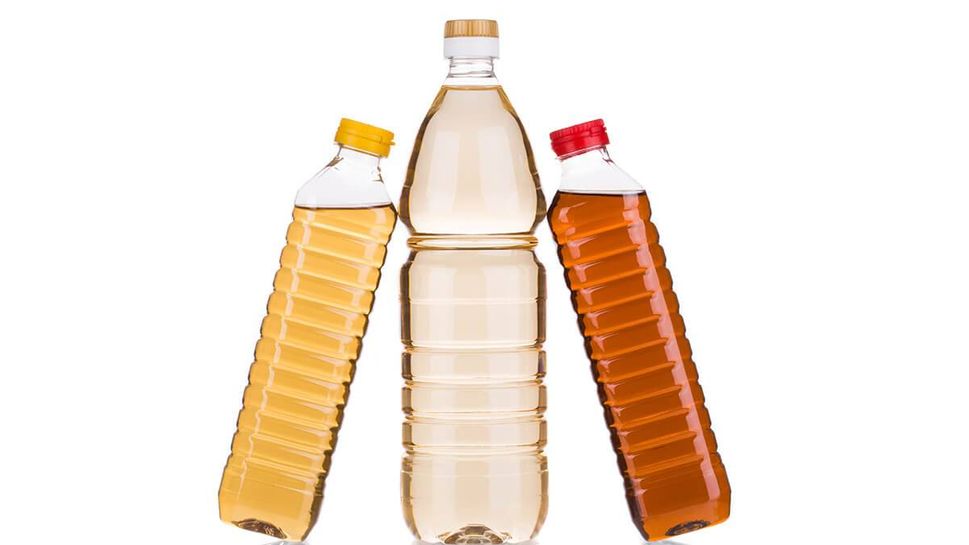
8. Wreak Havoc on Weeds, Naturally
In 2002, scientists at the United States Department of Agriculture proved that inexpensive, environmentally-safe vinegar is a potent weedkiller when applied the right way. Agricultural Research Services scientists tested vinegar on the four most common types of weeds (common lamb's-quarters, giant foxtail, velvetleaf, smooth pigweed and Canada thistle) and found that 5- and 10-percent vinegar concentrations killed weeds during their first two weeks of life, while older plants required higher concentrations of vinegar. As a general rule, household vinegar is about 5 percent concentration.
Note: When you're spraying hated weeds, be careful not to hit any beloved plants in the process — they'll also fall victim to a vinegar onslaught.
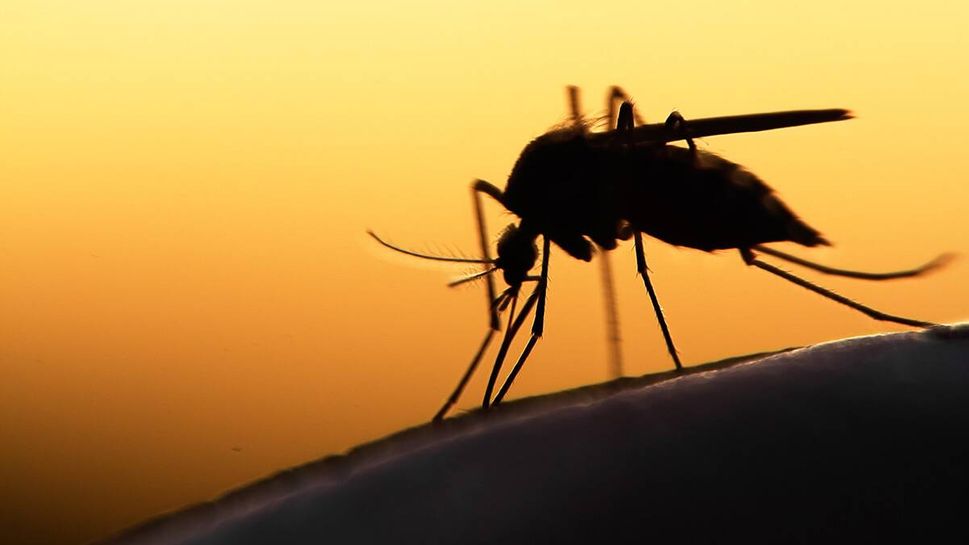
9. Repel Mosquitos with Potted Herbs
Mosquitos, one of the most irritating backyard insects, can eat a shoe. But you know what else isn't fun? Smelling like commercial bug repellant all summer and bathing yourself in chemicals. Increase the odor appeal of your deck or yard — and keep those bloodsuckers at bay — by planting pots of naturally mosquito-repelling herbs, such as citronella geranium, catnip, lemon thyme and lemon balm, says Rob Sproule, owner of Salisbury Greenhouse in Alberta, Canada, and author of New Annuals for Canada.
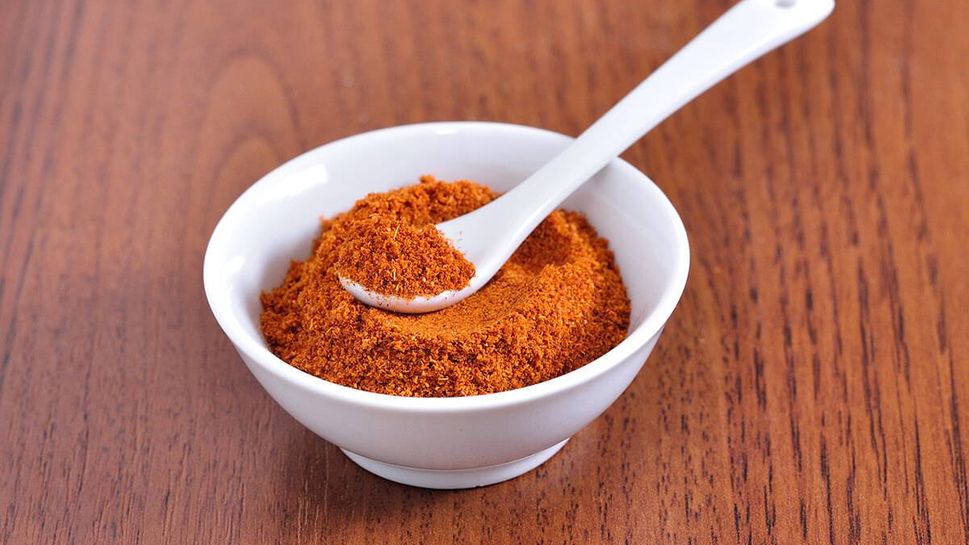
10. Here's a Hot Trick for Deterring Beetles
Members of the cabbage family (including broccoli, cauliflower, kale and brussels sprouts) in your garden will thank you for adopting this pesticide-free method of deterring hungry beetles and bugs. A study at Auburn University in Alabama found that standard issue red pepper powder (available in the spice aisle at the grocery store) is more effective at protecting cabbages from bugs than chemical pesticide.
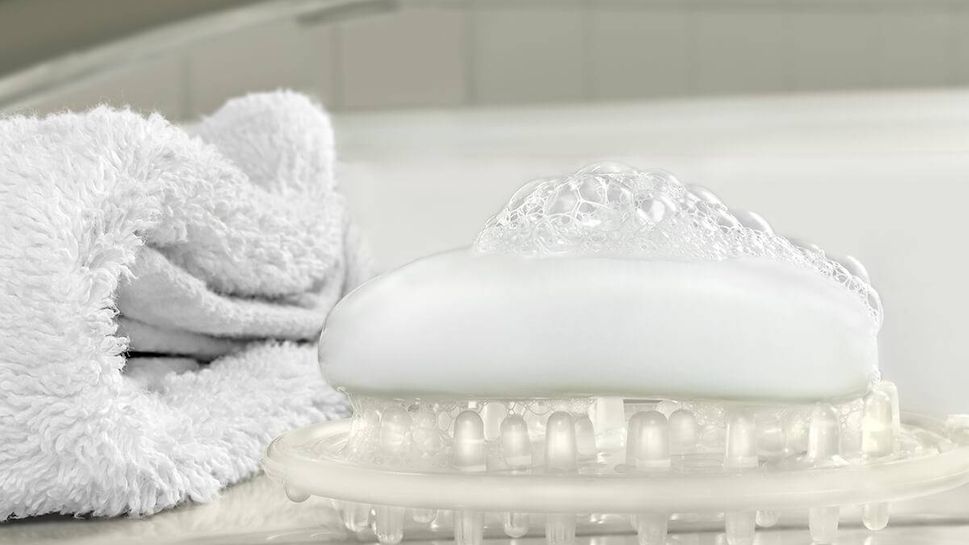
11. Stop Dirt from Mucking Up Your Nails
Any amount of time digging in the dirt seems to embed dirt farther under your nails than you thought possible. Instead of scrubbing for hours afterward with a nail brush, take this preventative measure: Before heading outside, rake your nails a few times across a bar of soap. The soap will fill the space under your nails, preventing dirt from getting in until you wash your hands with warm water.
Grandparents.com is a lifestyle website, social media community & peer group that unites & connects America's 70 million Grandparents to the best information and premier products & services just for them. Our goal is to promote well-being and give timely information on what really matters to you, from health and money to family and relationships to travel and retirement.

